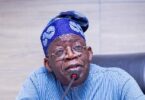The state of the global economy has put governments across the world on edge. Since the end of the coronavirus pandemic, nations have found several ways to bounce back and come to terms with their new realities. While the government tries to balance its books and restore economic parity, citizens, on the other hand, have become more agitated.... CLICK TO READ THE FULL NEWS HERE▶▶
The chorus of bad governance, rising cost of living, economic mismanagement, and insecurity depending on which part of the world you are reading from rings through. African countries are facing the brunt of the economic torch as protests continue to spread like wildfire from the East to the South and now the West.
Unlike other protests that have yielded little or no results, the latest uproars or uprisings have dealt a heavy blow to governments on the continent and some across the border.
Below is a list of countries across the globe whose citizens have stood up to their governments for various reasons

Nigeria
Nigerians hit the streets on Thursday, August 1 to protest against bad governance, the rising cost of living, and corruption under the #EndbadgovernanceinNigeria. The protesters exercised their fundamental human rights out of their grievances with the government.
The protest has, however, led to lost lives, injuries, damages to public and private properties, external sponsorship, and infiltration of criminal elements into the protest.
Several reports indicate that at least 50 protesters were arrested during the protest in Abuja. According to the police, nearly 700 protesters have so far been arrested across the country while nine officers have been injured.
In a televised address to protesters on Sunday, August 4, President Bola Tinubu told Nigerians that he had “heard” them as he called for the suspension of the demonstrations and an end to “bloodshed”
Kenya
The protest by Kenya’s young population in July over controversial tax hikes morphed into a wider outcry against government mismanagement, deep-rooted economic disparities, and a perceived lack of government accountability.
The unrest in the East African country emerged when President William Ruto, who had been elected with some goodwill proposed a finance bill that citizens frowned upon amidst the already challenging economic environment.
That protest led to the take-over of the Parliament Buildings in Nairobi, the dismissal of cabinet ministers, and the slashing of salaries by all government officials.
Despite this and other government concessions, the demonstrations have shown no signs of abating.
“This is not just about taxes anymore, the protests have changed into what the youth feel they need and they are not backing down. It will be tough to bring the protests to a stop until they get what they want,” explains Wandia Njoya, a political analyst at Daystar University. “It’s about a generation demanding a better future, one where they are not perpetually marginalized.
Ghana
But for a high court blocking civil society groups from holding a huge protest in Ghana between July 31 and August 6, more than 2 million Ghanaian youth had planned to throng the streets of Accra to demand more action from President Nana Akufo-Addo on corruption and living conditions, as well as to protest delays in signing an anti-LGBT bill into law.
Justice Abena Afia Serwaa approved the request by Ghana’s police to stop the protest as the security agency said it lacked the personnel necessary to provide security as officers have been deployed to political rallies amid election campaigning for elections.
While that protest was squashed, a large number embarked on a peaceful demonstration to drive home their demand for the halting of the sale of 60 percent stake in four hotels owned by the Social Security and National Insurance Trust (SSNIT) to Rock City Hotel, owned by the Food and Agriculture Minister, Bryan Acheampong.
A Member of Parliament together with Organised Labour and other stakeholders, questioned the process that led to the selection of Rock City as the viable entity to purchase the said hotels.
Bangladesh
Prime Minister, Sheikh Hasina had to flee the country after huge crowds stormed her official residence in Dhaka amid reports of looting and disorder in the capital.
After weeks of anti-government protests that toppled the longest-serving leader, an interim government was formed.
The protest according to the BBC started in early July when university students requested the abolishing of quotas in civil service jobs as a third of these are reserved for relatives of veterans from Bangladesh’s war for independence from Pakistan in 1971.
The campaigners argued the system was discriminatory and needed to be overhauled. Although their request was largely met, the protests soon transformed into a wider anti-government movement.
“It’s not [just] students anymore, it seems that people from all walks of life have joined the protest movement,” Dr Samina Luthfa, assistant professor of sociology in the University of Dhaka, told the BBC last month.
As the movement expanded, clashes followed, and over 300 people were killed in the unrest.











